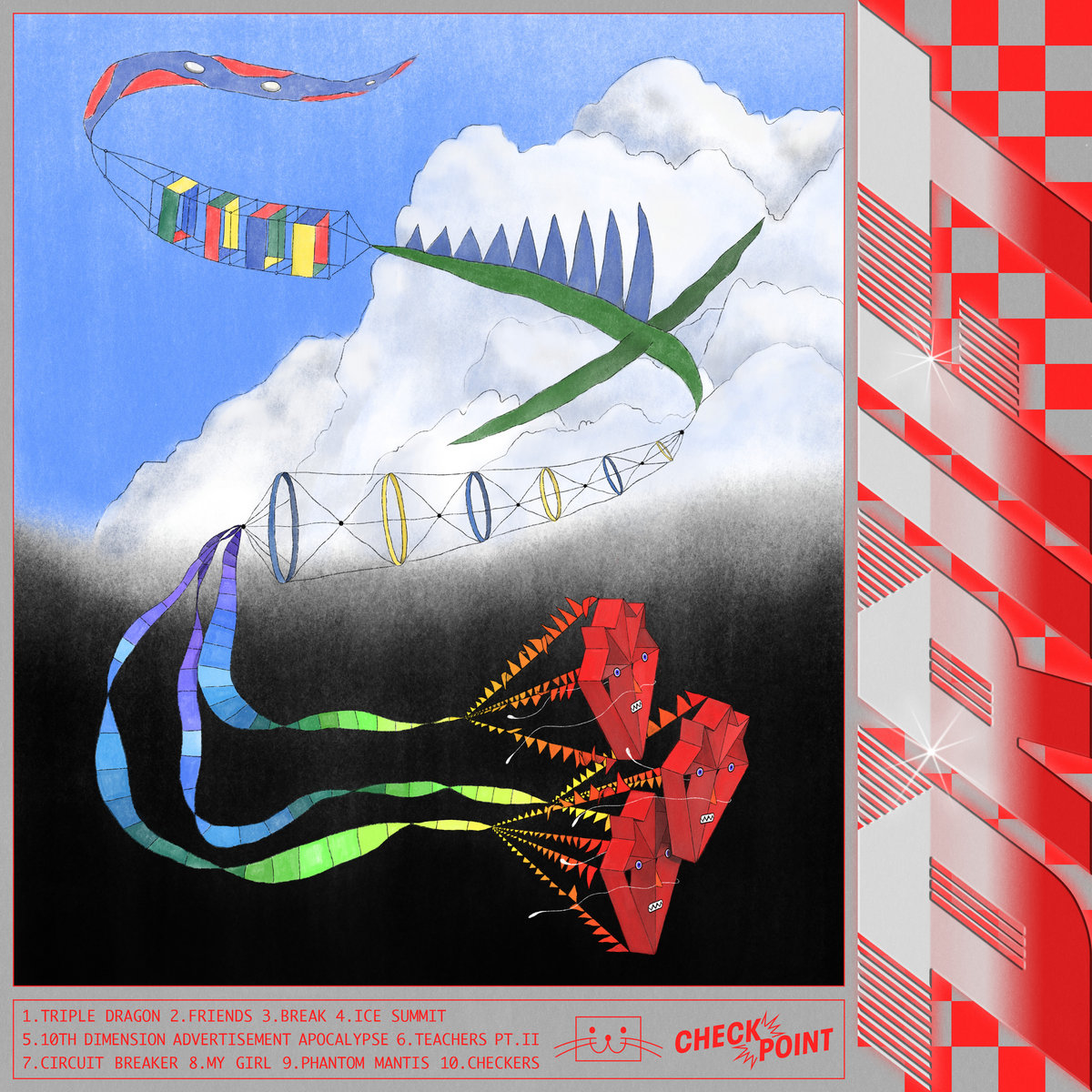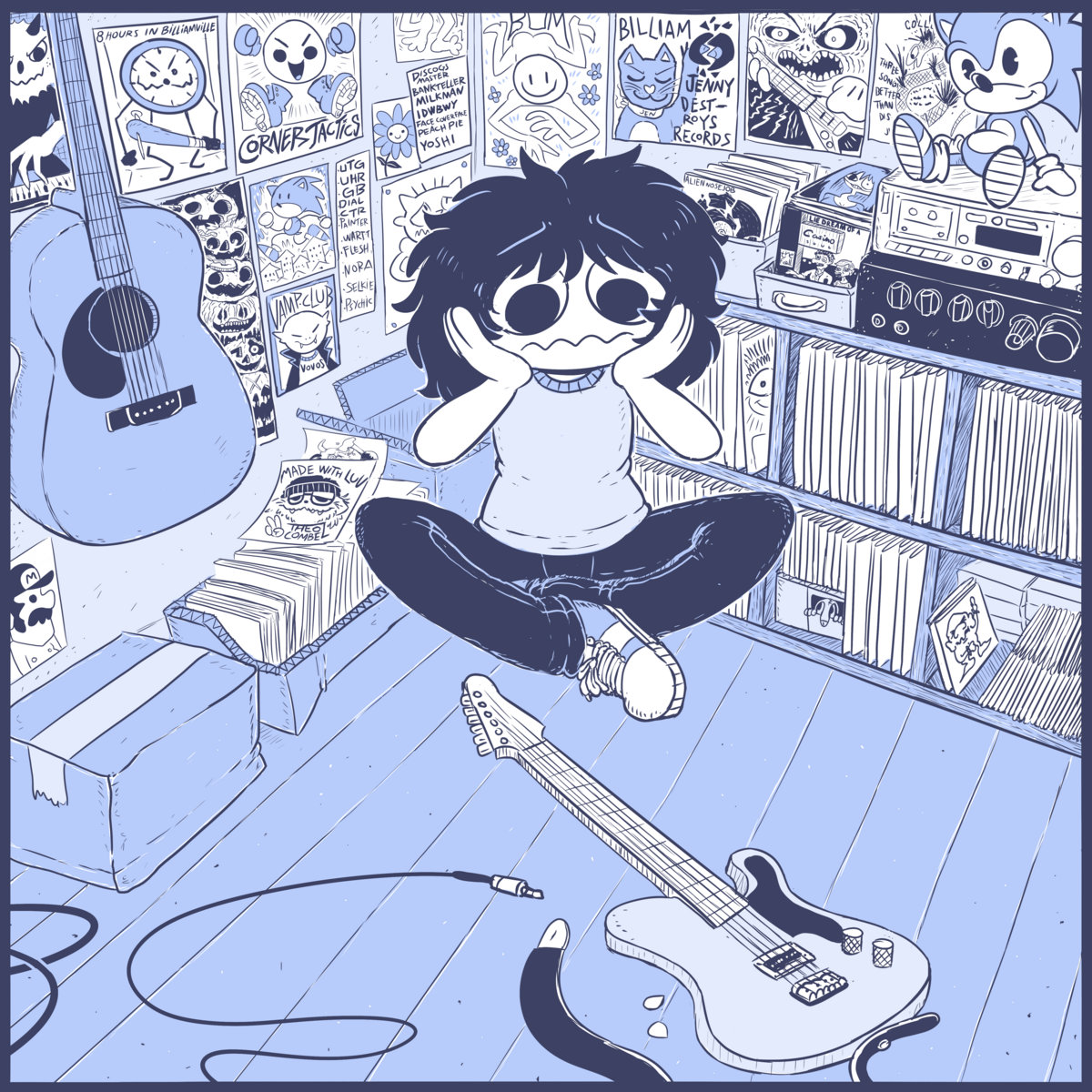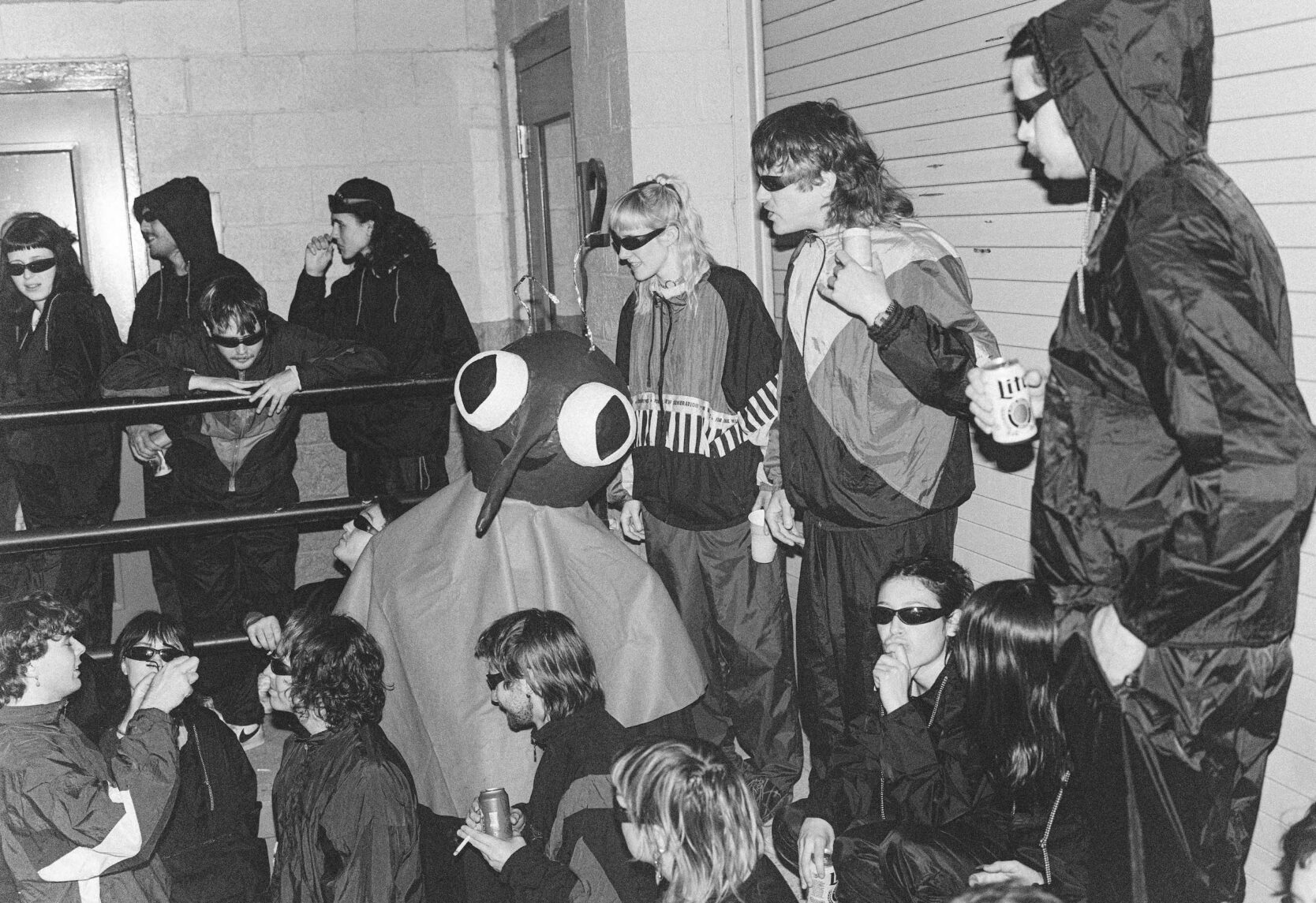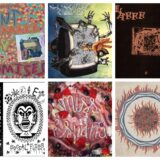Last year was full of highlights and milestones for the arts-and-crafty Nashville punk band Snõõper. They signed to Jack White’s Third Man Records label and released their debut album, Super Snõõper, to a hail of positive reviews. (We praised its “chatty, angular, art-y frustrations.”) They toured all over the U.S., the U.K., and Australia’s east coast, with a trip to mainland Europe in the works for 2024.
And to top it all, singer Blair Tramel’s grandmother has recently been asking a lot about “egg punk,” Snõõper’s sort-of-preferred, somewhat-rejected, not-so-serious subgenre.
“I’m like, ‘Well, it’s punk music, but it’s not aggressive. It’s not angry, but we do have the same messages (as other styles of punk),’” Tramel tells SPIN. “For me, I wouldn’t say it’s silly, but just making anger more accessible to more people, I guess.”
They say a rising tide lifts all boats, and Snõõper sit near the crest of a surge of so-called “egg punk” bands growing the genre from its head-scratching meme origins into a legitimate worldwide scene that feeds record labels’ release schedules, fills slots at music festivals, and finds its way to cool grandmas. Egg punk is not new, but it seems to be generating a new wave of bands taking the sound to interesting places, says musician and engineer Erik Nervous, who has been close to the action all along.
“The big years were like 2015 and 2016, and all the sort of founding texts of [egg punk] came out in those years,” he says. “Now, it’s just a lot of new people running with it.”

Nervous is based in northern Indiana, the unlikely epicenter of early egg punk thanks to the Coneheads, an enigmatic trio that gained attention in the mid-2000s by combining the speed and frustration of hardcore punk with the frivolity and melodic approachability of new wave. Across the American Midwest, bands with a similar bent—Lumpy & the Dumpers in St. Louis, Uranium Club in Minneapolis, Warm Bodies in Kansas City—started to congeal into a scene in which the songs were fast, the recording quality poor, and the guitars jagged and jittery. Synths were welcome (but not required), and the scowling seriousness of hardcore gave way to some combination of insecurity, introversion, alien sounds, goofy behavior, and toe-tapping fun.
Generally speaking, these bands gigged in basements and DIY spaces, released music in ultra-limited quantities, and eschewed attention, but they were nonetheless grouped together as Devo worshippers, documented by austere (and 100% crucial) YouTube channels—then, in 2017, identified as “egg punk” and pitted against “chain punk” in a hand-drawn meme that went viral on Instagram and other social media platforms.
That meme initially caused a wave of bewilderment, hand-wringing, and debate, and some bands, of course, rejected the egg punk label, as Nervous notes. Among the new guard, however, that sentiment has largely subsided.
“I would think most bands are OK with it now,” he says. “I mean, there’s always going to be those who are like, ‘No, you can’t tell me what I am!’ But if someone’s that worked up about it, that’s kind of their own problem.’”
Thomas Haug isn’t worked up about the term, but he is a bit tired of it. Which is understandable—from his home in Germany, he has been running one of the planet’s best egg-friendly punk labels, Erste Theke Tontraeger, since 2011. (He put out the Coneheads’ first LP—a compilation of two self-released cassettes—in early 2015.) Haug believes the current egg punk explosion can be partly traced back to COVID-19 pandemic isolation, when burgeoning punks had time to explore DIY music and try recording it alone in their homes.
“That’s one thing I think is interesting about egg punk—you can do it all yourself with electronic drums and stuff,” he said. “I think it was a good year for records, but I’m just a little tired of the use of this [term] because it’s just, like, good new punk music. Call it whatever you want. As long as the music is good, I’m happy with it.”
A list of great egg punk albums released in 2023 is subject to anyone’s definition of the term, of course, but Erste Theke Tontraeger is an excellent place to start exploring. Last year, Haug released a four-song EP from Spanish synth weirdos Prison Affair; a compilation of the first four demos from Olympia, Washington synth punk blazers the Gobs; and Drift, the debut from Checkpoint, a supergroup from the wildly fertile punk scene in Australia.
The Checkpoint album is a favorite of the mononymous musician known as Billiam, himself one of the bright young lights on the Melbourne scene. Billiam released his fine first LP of buzzy, propulsive egg punk, Corner Tactics, in September. Just 21 years old, he is deferential in his assessment of why his home country is such a productive incubator for this style of music.
“That’s definitely a question to ask someone who isn’t as new to this as I am, but I think it’s just a combination of the geographic isolation and the fact that Australia has always kind of produced really weird music and gravitated toward punk,” he said. “In Melbourne, there are a lot of places for people to meet—a lot of venues, a lot of people who want to put on shows, people who want to release records, print flyers, write about bands … all sorts of things.”



A day’s drive up the road from Melbourne is Australia’s other egg punk breeding ground, Sydney, where you’ll find a trio of powerhouses in Buz Clatworthy’s tightly wound R.M.F.C., Ishka Edmeades’ radiantly poppy Tee Vee Repairmann, and Kel Mason’s famously rowdy Gee Tee, whose Goodnight Neanderthal, released via American punk institution Goner Records, might just be last year’s catchiest egg punk album. (Edmeades, for the record, is probably the busiest man in the genre, recording often weird and always catchy songs under the names Research Reactor Corp., Satanic Togas, Set-Top Box, and Remote Control, in addition to Tee Vee Repairman.)
Meanwhile, back in America, egg punk has spread far beyond its Midwestern roots. Last year alone, the genre turned out great releases from Cherry Cheeks (originally from Florida, now in Portland), Ismatic Guru (Buffalo, New York), Spllit (Baton Rouge, Louisiana), Clarko (Reno, Nevada), Silicone Prairie (Kansas City), Stuck (Chicago), and the aforementioned Erik Nervous and Snõõper, to name a handful.
“It’s been a fucking fantastic year,” Billiam said, “for this kind of whatever genre you want to call it.”
Connor Cummins, who plays guitar in Snõõper and also records under the name Spodee Boy, doesn’t really want to call it “egg punk” anymore. But along with Nervous and Haug and Billiam, he understands how genre terms can help people find music they love and connect with other people who love the music they love.
“You can’t really call it ‘garage rock.’ You can’t really call it ‘hardcore.’ You can’t really call it ‘power pop.’ It’s kind of its own thing, which I understand for classification,” Cummins said. “It makes sense, but I don’t love the name. I do, however, notice there are a lot of younger kids who are starting bands who really embrace the term, and I think they get a sense of community out of it, so I don’t think it’s a bad thing.”
Indeed, it was exactly that sense of community that initially drew his Snõõper co-founder, Tramel, to egg punk.
“Connor came from a real punk background, where I was, like, the person at punk shows that didn’t look punk and didn’t dress punk, and I would always get shit for that,” she said. “And then I went to an egg punk show, and everyone was dancing and happy and having fun, and I was like, ‘Oh, here’s something for me.’”





